What’s likely the world’s finest selection of violins is preserved on the outskirts of Tainan by Chi Mei Cultural Foundation.
The foundation, and the Chi Mei Museum (奇美博物館) in which it’s housed, are off-shoots of the Chi Mei Group (奇美實業), a conglomerate that grew out of a plastics business established more than half a century ago by billionaire Shi Wen-long (許文龍).
Shi has had a lifelong relationship with the violin. In his teens, he taught himself how to play the instrument. Because his parents couldn’t afford to buy him a violin, he made his own.
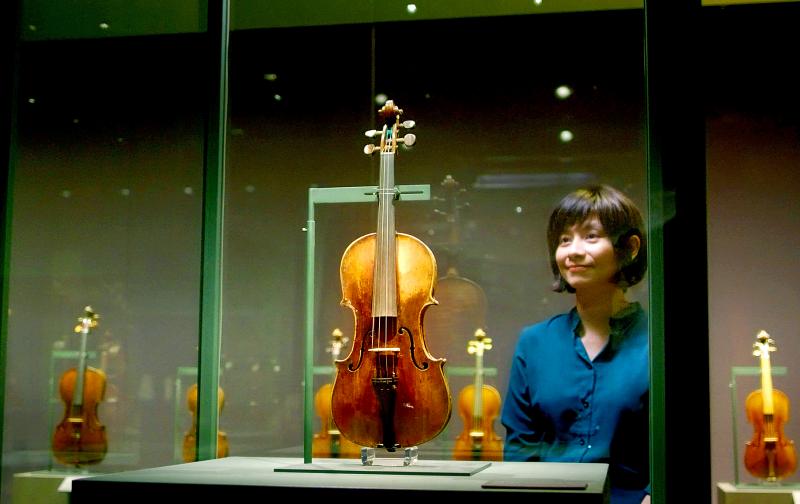
Photo: Wu Chun-feng, Taipei Times
He acquired his first professionally-made violin just after World War II, from a Japanese national who was selling off his possessions before repatriation to Japan. When the strings on it broke, it’s said that Shi replaced them with wires plundered from the wreckage of a Japanese military aircraft.
The tycoon has been a serious collector of violins — and many other things besides — since the late 1970s.
In addition to having what Strings magazine in 2012 called “the world’s greatest stringed-instrument collection,” one of the stated aims of Chi Mei Museum is to demonstrate the lineage of violin luthiers who worked during the “golden age” of violinmaking, among them the great Italian craftsmen Antonio Stradivari (1644–1737) and Bartolomeo Giuseppe “del Gesu” Guarneri (1698–1744). Visitors to the museum can see a complete luthier’s workshop, as well as historic instruments and bows.
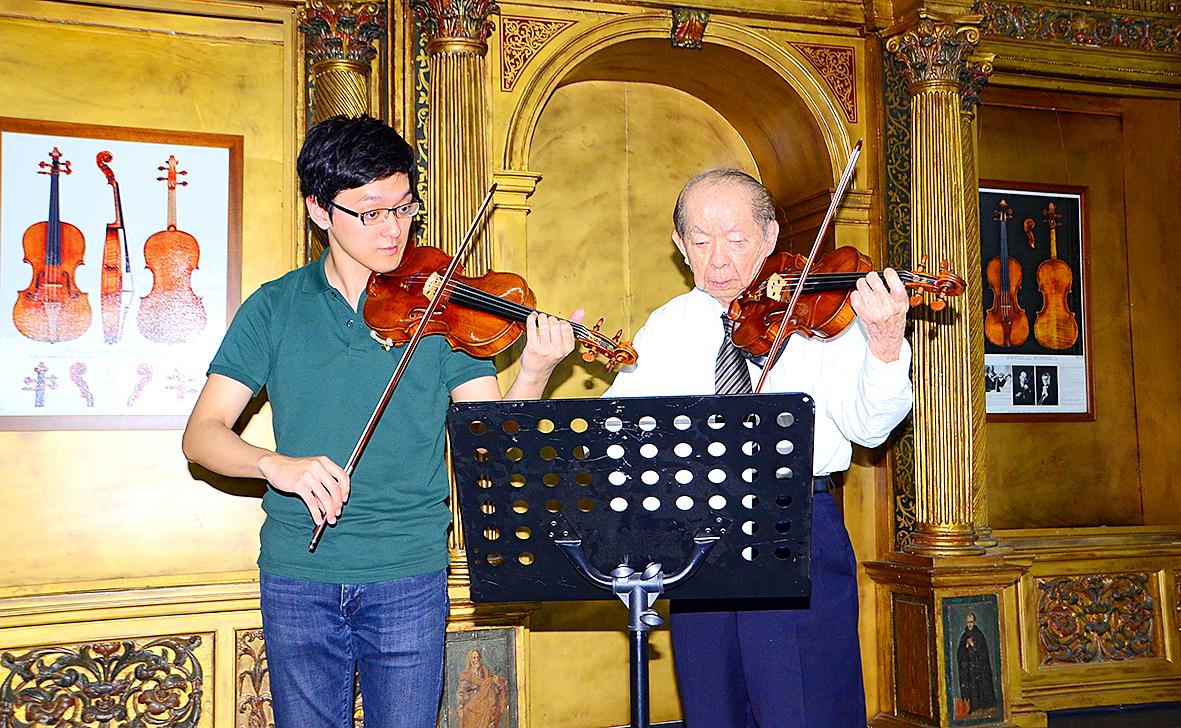
Photo: Wu Chun-feng, Taipei Times
LENDING A HELPING STRING
According to Patricia Liao (廖婉如), the museum’s deputy director, Shi doesn't like the idea of a superb musical instrument being kept behind glass in a museum, or hidden in a climate-controlled vault. Consequently, since 2004, Chi Mei Cultural Foundation has loaned instruments to more than 4,000 musicians in Taiwan and abroad.
Many of these individuals, she explains, have borrowed different instruments at different times, or borrowed a particular instrument on more than one occasion.
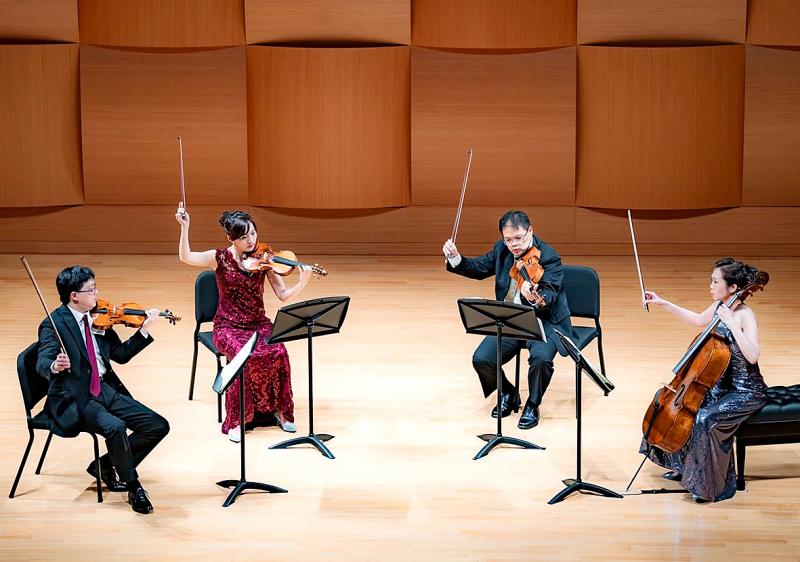
Photo courtesy of Wang Yung-nian
“Because supporting young musicians was one of Mr. Shi’s very earliest intentions, he began purchasing instruments of different grades from the early stages of his violin-collecting journey,” Liao says.
Chi Mei isn’t the only organization in the world to do this. But, as Chung Dai-ting (鍾岱廷), one of the foundation’s senior consultants, points out, the others don’t accept applications from such a broad category of musicians.
The Nippon Music Foundation, which is backed by Japan’s government, only lends instruments to world-class professional musicians. The Royal Academy of Music Museum in London makes some of its collection of 200-plus string instruments available to Royal Academy of Music students and recent graduates. Norway’s Dextra Musica Foundation also makes instrument loans, but only to Norwegian full-time musicians.
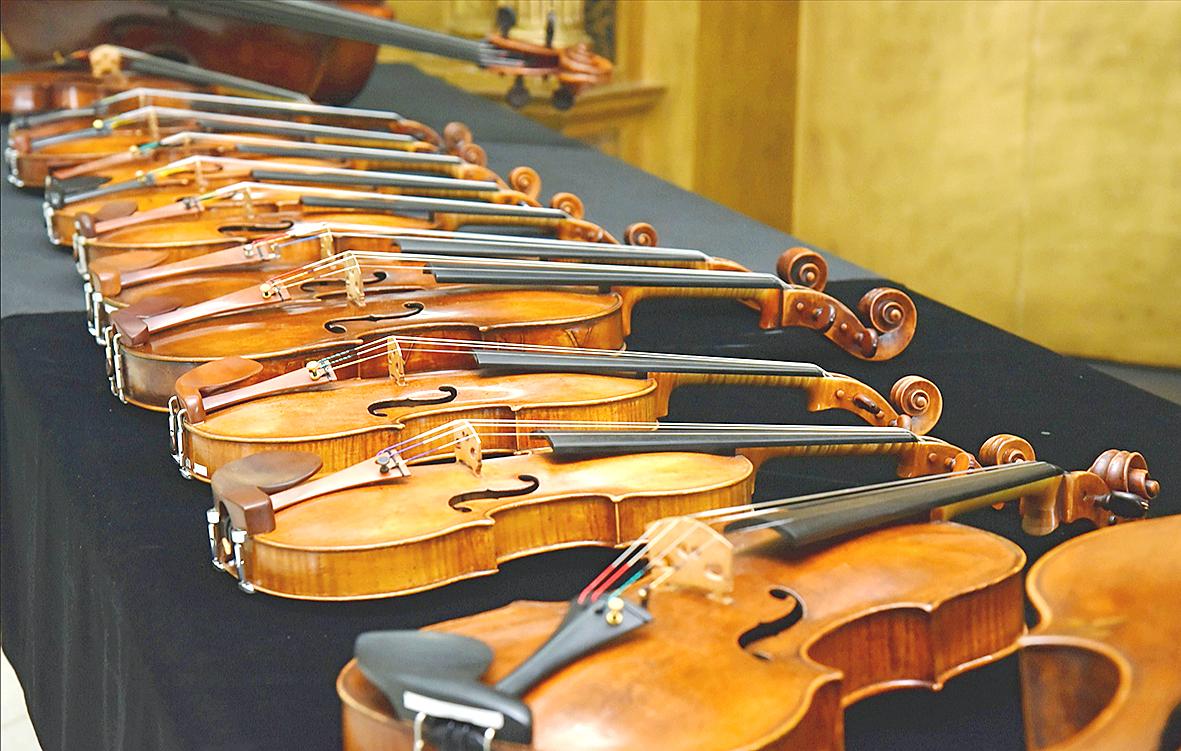
Photo: Wu Chun-feng, Taipei Times
“We currently have 270 violins out on loan, accounting for about 20 percent of our collection. About 70 percent of the loans are to Taiwanese students studying abroad, while the other 30 percent are to students and professionals here in Taiwan,” says Chung.
The approximately 400 loan applications that Chi Mei receives each year are reviewed by a special committee, Chung says. Among the factors the committee weighs are the applicant’s age and maturity, their competition results and whether they want to use the violin for recording, performing or to take part in a competition.
Successful applicants are invited to come to the museum and try out between four and eight violins of an appropriate grade. If they find one they like, a contract can be signed on the spot.
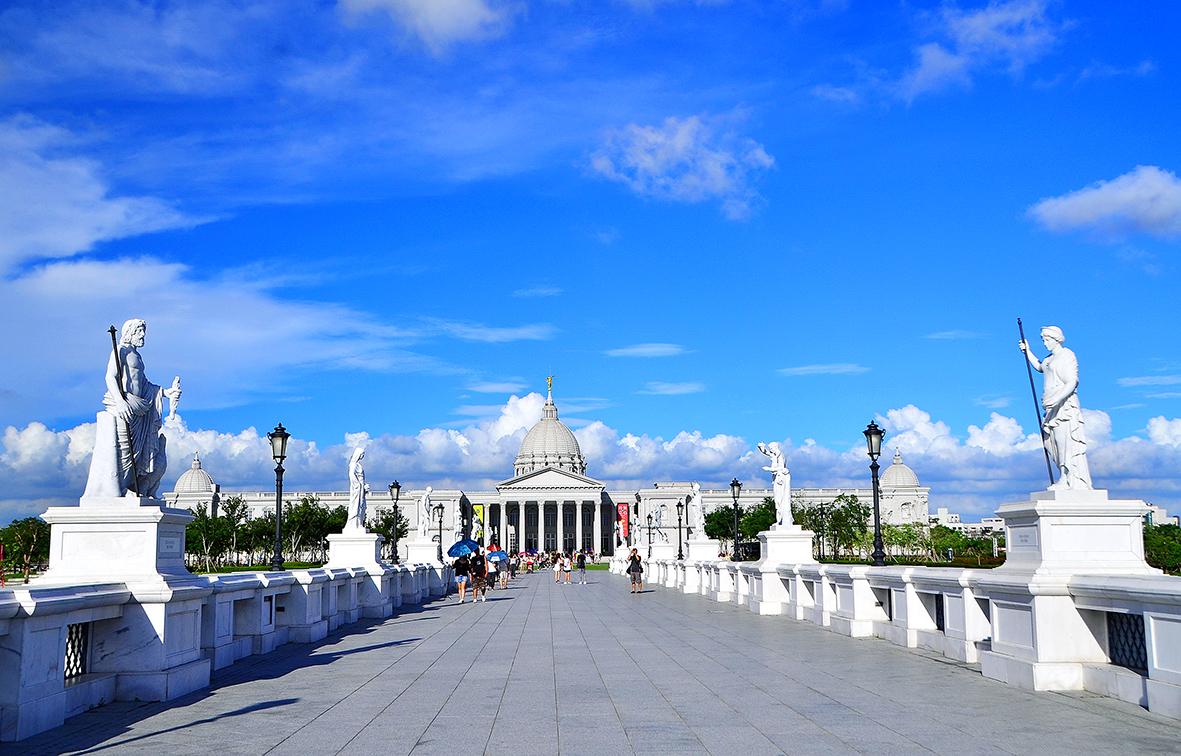
Photo: Wu Chun-feng, Taipei Times
Chi Mei doesn’t earn a penny from these loans, Chung says. However, borrowers are required to reimburse the foundation for the cost of insuring the violin. This is roughly 0.182 percent of the instrument’s market value, but premiums also take into account where it’ll be used, and the duration of the loan.
“We pay at least US$100,000 per year to the insurance companies we work with,” Chung says.
So far, only one violin has been broken while on loan. Four were mislaid, of which all but one were eventually recovered.
If a student can’t afford the insurance premium, the foundation will suggest some less valuable violins for them to choose from, or help them find a sponsor. Oftentimes, a member of the Chi Mei Group will step in to provide financial support.
“Helping talented musicians and students has always been part of our mission, so we always try our best to reach out to them. We’ve supported Taiwanese joining major international violin competitions when they’ve been unable to afford a good violin or a bow,” says Chung.
BENEFICIARIES
One of the best-known beneficiaries of the loan program is Tseng Yu-chien (曾宇謙), who has a recording contract with Deutsche Grammophon.
Tseng, who has performed as a soloist with orchestras in the US, the UK, China and many other places, currently plays Bartolomeo Giuseppe “del Gesu” Guarneri’s “Castelbarco-Tarisio” violin.
That instrument, crafted in 1732, is one of more than a dozen from Chi Mei that Tseng has used so far.
In 2015, Tseng took second prize in the Violin Division of the 15th International Tchaikovsky Competition. Because no first prize was awarded that year, the New Taipei City native was in effect the winner. In the same year, he won first prize in the Singapore International Violin Competition, playing a 1709 Stradivarius.
Tseng was introduced to Chi Mei Cultural Foundation by one of his mentors, Nanette Chen (陳沁紅), dean of the College of Music at National Taiwan Normal University.
“Chi Mei’s encouragement and support for violinists in Taiwan is indispensable,” Chen says.
Because Chi Mei has been so systematic in expanding its collection, the museum has emerged as a key venue for international meetings and conferences, she adds.
Other musicians who’ve made a splash while playing instruments owned by Chi Mei include Richard Lin (林品任) and Chen Yu-ting (陳雨婷).
The Arizona-born, Taichung-raised Lin was the gold medalist at the 10th Quadrennial International Violin Competition of Indianapolis in 2018. Chen won the Senior Third Prize at the 2016 Menuhin Competition.
One of the most famous violins in Chi Mei’s collection is the 277-year-old “Ole Bull,” made by Guarneri. It’s thought this instrument was the last one Guarneri completed.
This “Ole Bull” — other violins, including a 1687 Stradivari held by the Smithsonian Museum, bear the same name for the same reason — was once owned and played by Ole Bull (1810-1880), a celebrated violinist and a key figure in Norwegian nationalism.
“Almost every year, Norway’s government has come to us to borrow this violin, so it can be played at events that commemorate Ole Bull,” says Chung.
Since acquiring the violin in 1992, Chi Mei has loaned it out several times so it could appear in events commemorating Ole Bull. Twice, it’s gone on display at the Edvard Grieg Museum in Bergen.
The museum focuses on the most famous composer in Norway’s history, and while not every visitor will have noticed that one particular instrument had come all the way from Taiwan, its presence surely helped spread awareness of Chi Mei’s special role in the world of stringed instruments.
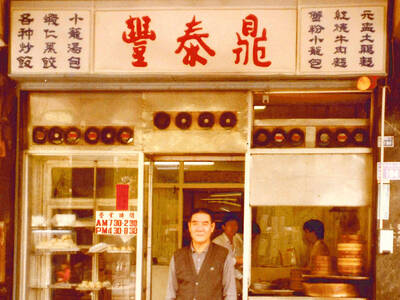
March 24 to March 30 When Yang Bing-yi (楊秉彝) needed a name for his new cooking oil shop in 1958, he first thought of honoring his previous employer, Heng Tai Fung (恆泰豐). The owner, Wang Yi-fu (王伊夫), had taken care of him over the previous 10 years, shortly after the native of Shanxi Province arrived in Taiwan in 1948 as a penniless 21 year old. His oil supplier was called Din Mei (鼎美), so he simply combined the names. Over the next decade, Yang and his wife Lai Pen-mei (賴盆妹) built up a booming business delivering oil to shops and

The Taipei Times last week reported that the Control Yuan said it had been “left with no choice” but to ask the Constitutional Court to rule on the constitutionality of the central government budget, which left it without a budget. Lost in the outrage over the cuts to defense and to the Constitutional Court were the cuts to the Control Yuan, whose operating budget was slashed by 96 percent. It is unable even to pay its utility bills, and in the press conference it convened on the issue, said that its department directors were paying out of pocket for gasoline

On March 13 President William Lai (賴清德) gave a national security speech noting the 20th year since the passing of China’s Anti-Secession Law (反分裂國家法) in March 2005 that laid the legal groundwork for an invasion of Taiwan. That law, and other subsequent ones, are merely political theater created by the Chinese Communist Party (CCP) to have something to point to so they can claim “we have to do it, it is the law.” The president’s speech was somber and said: “By its actions, China already satisfies the definition of a ‘foreign hostile force’ as provided in the Anti-Infiltration Act, which unlike

Mirror mirror on the wall, what’s the fairest Disney live-action remake of them all? Wait, mirror. Hold on a second. Maybe choosing from the likes of Alice in Wonderland (2010), Mulan (2020) and The Lion King (2019) isn’t such a good idea. Mirror, on second thought, what’s on Netflix? Even the most devoted fans would have to acknowledge that these have not been the most illustrious illustrations of Disney magic. At their best (Pete’s Dragon? Cinderella?) they breathe life into old classics that could use a little updating. At their worst, well, blue Will Smith. Given the rapacious rate of remakes in modern